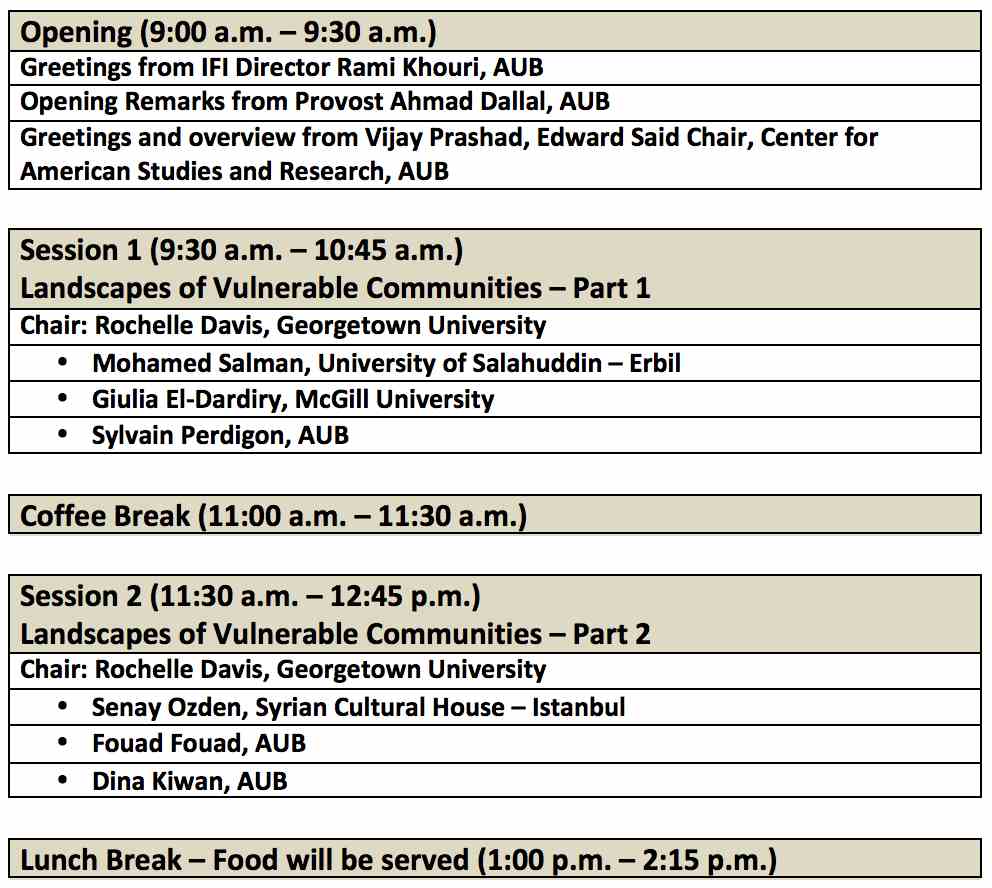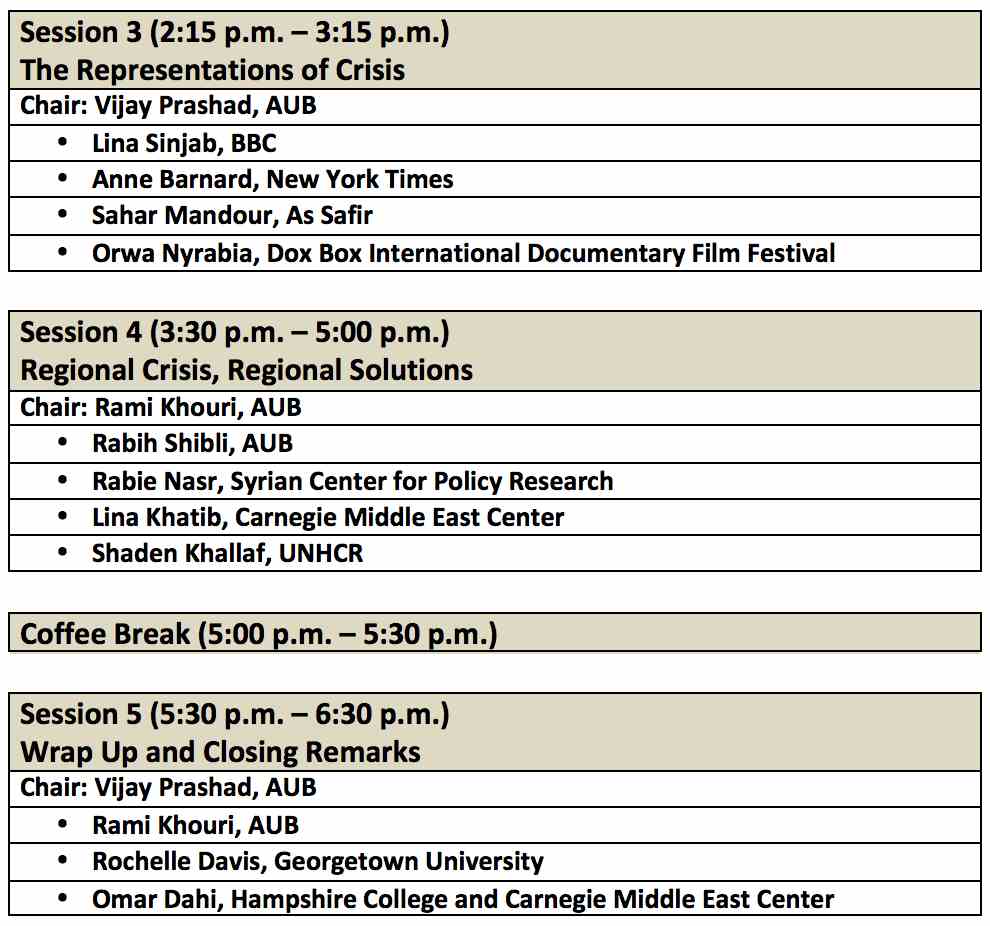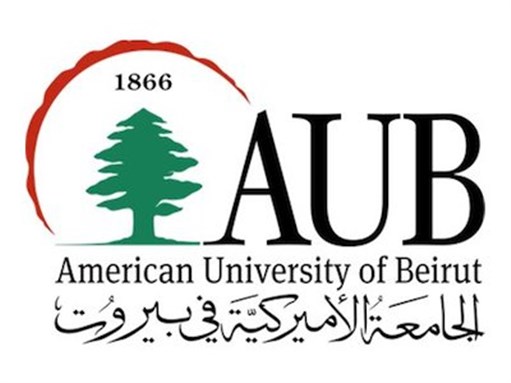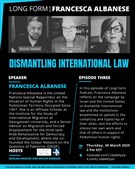Syrians in Their Neigbhourhood:
A One-Day Symposium on the Syrian Refugee Crisis
by the Refugee Research and Policy in the Arab World Program at the Issam Fares Institute for Public Policy and International Affairs (IFI) at the American University of Beirut (AUB)
13 March 2014
IFI New Building, Auditorium
AUB
Beirut, Lebanon
The Syrian crisis has become one of the most challenging global humanitarian catastrophes. Inside Syria the grinding conflict has resulted in horrendous loss of life as well as social and economic devastation. A third of Syria’s 22 million people are displaced, with 2.5 million people who are in distress but unable to be reached by UN agencies and NGOs. The impact of this “Syrian” crisis has reached far beyond its borders. States that border Syria and their societies have also felt the brunt of the Syrian war. Millions of registered and unregistered Syrians have crossed into Egypt, Iraq, Jordan, Lebanon and Turkey. The UN, the regional states and charity organizations have tried to share the responsibility for the onrush of refugees. But the crisis is grave.
Thus far, writings on the crisis have provided us with numbers – the immensity of the aggregate cost in human and financial terms – and with faces – the individual stories of those who have been displaced from their normal lives. Both the numbers and the faces are essential ways to understand what is going on in and around Syria. What is needed, to supplement these accounts, is a more structural view based on field-level research amongst Syrians who have left their country to settle across the borders. A number of scholars have been conducting field research in Lebanon, Iraq, Jordan and Turkey. They will come to the symposium and provide us with an analysis of the structural and ethnographic feature of the refugee crisis and with calibrated policy outcomes.
Numbers and faces, as well as structural features are essential as a way to represent the refugees – although all these methods suffer from the problem of how to represent refugees while maintaining their dignity and maintaining the immensity of the suffering. We will bring together some artists, writers and journalists who have grappled with the dilemma of representation of refugees – to find a mode between dignity and suffering.
Just as the Syrian conflict itself has become regional in nature, the humanitarian crisis has also become a regional one. The UN and the Arab League appointed envoys -- first Kofi Annan (2012) and then Lakhdar Brahimi (2012) -- to tend to the political side of things, although with limited success. In 2013, the UN appointed a Regional Humanitarian Coordinator, Nigel Fisher, to handle the humanitarian side of the regional crisis. The mandate for the RHC is open ended, partly as a liaison for the different agencies that are providing relief to the refugees, but also partly to be in touch with the political side as it draws plans for a political solution to the crisis. Thus far, however, there has been an insufficient exploration of the links between the political question and the humanitarian one in the context of Syria.
If nothing else draws the regional states to involve themselves in the question of a political road in Syria, self-interest might. The regional refugee crisis has created social tensions, opened up political fissures and produced economic disruption in the host countries, putting vulnerable people at further risk. There are already signs that the humanitarian crisis and the military futility in Syria might be a way of overcoming the regional political deadlock by bringing all key sides to the table. We hope that the afternoon discussion will help us move from a consideration of relief to a consideration of the political options that emerge less out of the political positions staked out and more from the humanitarian question.
In this one-day symposium we bring together experts with intimate knowledge of how the crisis is unfolding in the different countries to discuss the nature of the problem, the role of governments, local and international organizations and UN agencies, and the prospects for regional solutions.
13 March 2014
IFI New Building, Auditorium
AUB
Beirut, Lebanon
Symposium Program




















